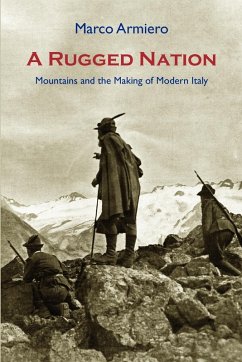Landscape, politics and history: the Italian mountains as a crucible of national and natural identity. This book is part of a wider current in environmental history, that explores the links between nature and nation. It uncovers how Italian identity and mountains have constituted one another. It argues that state regimes since unification in 1861 have made mountains into national symbols and resources, thereby affecting mountain communities and ecosystems. The nationalisation of Italian mountains has been a story of military conquest and resistance, ecological and social transformation, expropriating resources and imposing meanings. The wind of 'big' history was rolling through the Alps and the Apennines: State building and national identities, totalitarianism and democracy, economic development and environmental protection, scientific knowledge and vernacular practices are the substance of this book. The book starts with the revaluation of mountains as the repository of the last Italian wilderness and chronicles the discovery/ invention of mountains as wild, primitive, and rebellious places needing to be tamed. World War I permanently transformed mountain landscapes and people, nationalising both. When the Fascists came to power, the process of politicisation of mountains reached its acme; the regime constructed and exploited mountains both rhetorically and materially, on one hand celebrating ruralism and rural people and, on the other, giving mountain natural resources to large hydro-electric corporations. Having been the sanctuary of Resistance against the Nazi-Fascist occupation, the Italian mountains were emptied by the economic boom of the 1960s; only recently have the green of natural parks and the white of the ski resorts become the distinctive colors of the new, tourist-oriented Italian mountains.
Hinweis: Dieser Artikel kann nur an eine deutsche Lieferadresse ausgeliefert werden.
Hinweis: Dieser Artikel kann nur an eine deutsche Lieferadresse ausgeliefert werden.








